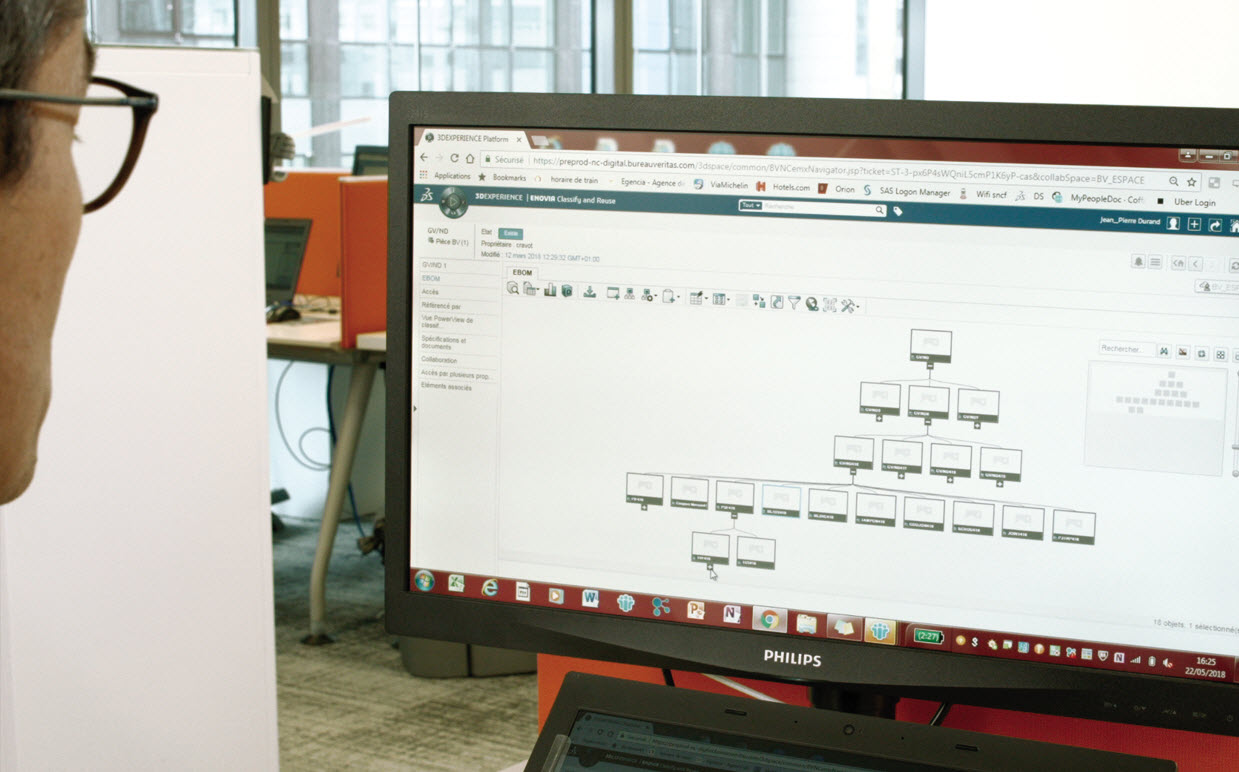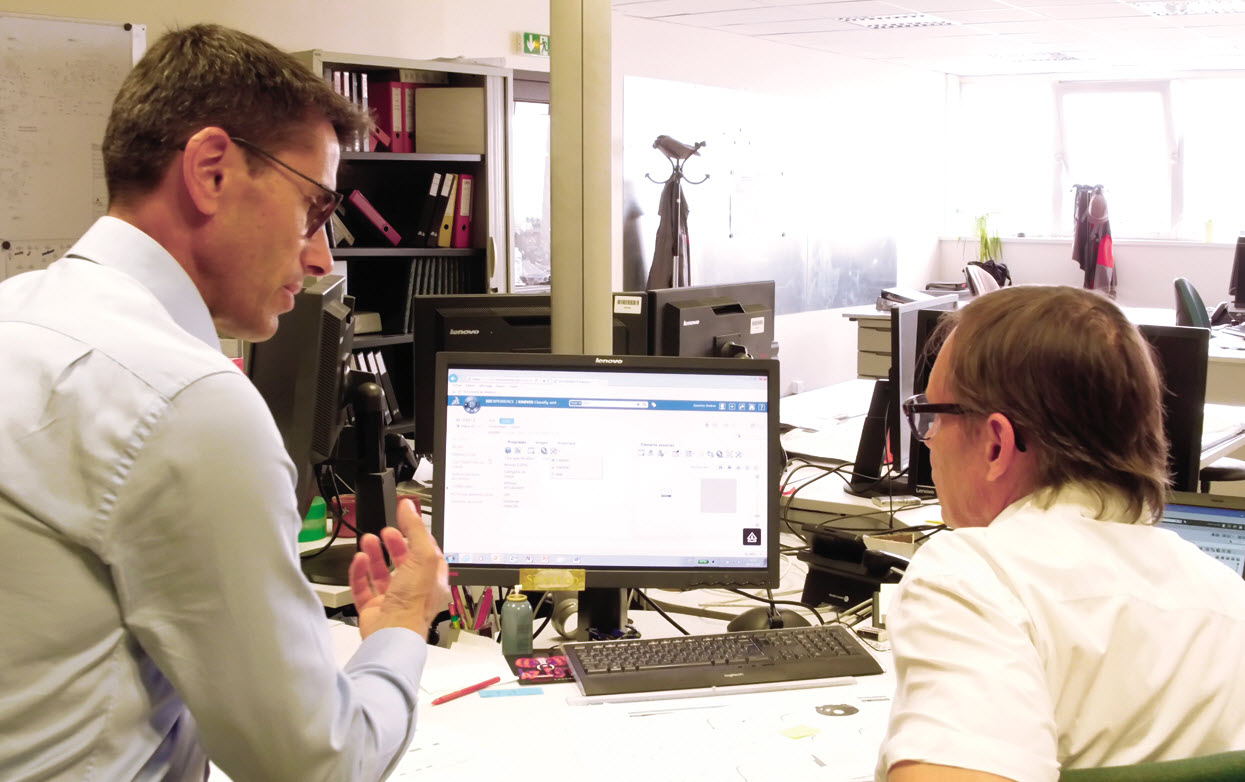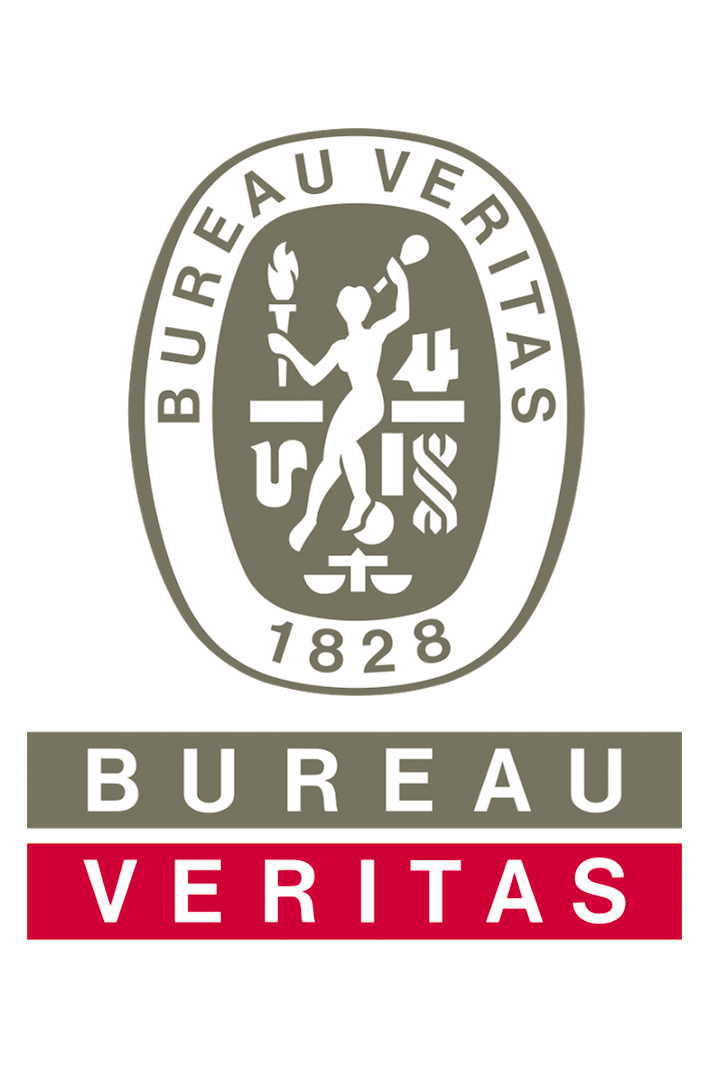Bureau Veritas
Bureau Veritas uses Dassault Systèmes’ 3DEXPERIENCE platform to implement digital continuity from initial specifications to transport, installation and operation of pressure equipment in a nuclear facility.
Making the world a safer place
A broad range of products and services, including power generation, vehicles and food are subject to standards and regulations to make them safe for humans and the environment. Ensuring compliance is the job of independent firms such as Bureau Veritas. Founded in 1828, the company has become a world-leader in testing, inspection and certification services. Their mission is to make the world a safer place.
The nuclear sector has seen a significant rise in environmental and safety-related regulations over the years, and plants and their equipment must abide by these regulations throughout their development, installation and operation. “Bureau Veritas’ ambition in the nuclear sector is to provide our customers, equipment manufacturers and safety authorities with innovative solutions to improve the performance of our inspections, while maintaining the highest level of rigor,” said Laurent Kueny, vice president Group Strategy at Bureau Veritas.
“Our clients are either operators or government authorities who want to ensure nuclear facility devices are designed and manufactured in compliance with regulations where the equipment will be in operation,” said Jean-Pierre Durand, director of technical development and digital innovation, Bureau Veritas. “We intervene throughout the entire development cycle of a device, from the design phase, to making sure its manufacture complies with the appropriate fabrication processes, to verifying that the device is installed, operated and maintained according to regulations. Our job is to identify non-conformities and to alert our client so that corrective action is taken. Considering the dangerous nature of noncompliant nuclear facilities, Bureau Veritas is extremely meticulous when conducting its inspections. We have implemented a number of innovations over the years, such as using drones to evaluate sites, which reduces inspection times and increases our competitive advantage.”
“Our challenge is to simplify the execution of complex regulations. This requires an in-depth transformation of our business,” Kueny said. “This transformation is important for Bureau Veritas and our customers to improve our processes, productivity and efficiency to better control project risks and, for Bureau Veritas, to differentiate ourselves on the market.”
Through this platform approach, we estimate a 20% gain in productivity in document management as well as better visibility on a project’s status or where they are at risk.
Managing complexity and risk
Companies working in the nuclear industry are digitally transforming their organizations. “Many industry actors are looking to improve their productivity, data traceability and supplier collaboration,” Durand said. “When you have multiple actors and massive amounts of data, it’s difficult to see clearly when conducting complex, highrisk projects. We are convinced that implementing digital continuity throughout our processes will improve our efficiency across the board. However, we are seeing in the industry many projects and strategic declarations from executives but few actual realizations because the right tools are few and far between. For example, many companies have separate tools for design, analysis and project management but lack a completely integrated solution, which is essential when dealing with complexity and risk.”
Bureau Veritas adopted an integrated approach with Dassault Systèmes’ 3DEXPERIENCE® platform as the foundation for its compliance activities. It developed a web-based interface or digital kiosk powered by the 3DEXPERIENCE platform, with assistance from Dassault Systèmes, to interact with their clients. The tool, called NC Digital (Nuclear Conformity Digital), is used to exchange information in real time with device manufacturers and owner/operators.
“Prior to NC Digital, clients sent us large amounts of data, plans, calculations and fabrication procedures that we had to examine in order to provide an assessment of each device,” Durand said. “Everything was done through emails, and we had to keep track of all documents that were shared manually. Since everyone stored the documents in their computers and servers, we spent half our time during project meetings searching for the latest documents and comments. This situation was quite inefficient.
“With NC Digital, we introduce a platform approach that enables companies to sign in and submit their documents, and where we can publish our findings,” he added. “We go straight to the point during meetings because all our information – documents, drawings, comments – is in one place and up to date, with links and relationships clearly visible. We estimate a 20% gain in productivity in document management as well as better visibility on a project’s status or where it is at risk. Moreover, each stakeholder is automatically notified when a new document is published, which helps ensure everyone is on the same page.”
NC Digital fits in with Bureau Veritas’ strategy to instill a more collaborative approach within the company and with its clients. “More than just a digital tool, this collaborative platform paves the way toward increased efficiency when interacting with our clients,” Kueny said. “It will enable us to transform our profession, first in France and then in other countries.”

Long term traceability
One of the biggest challenges facing the nuclear industry is traceability. “The information that must be recorded during an inspection has multiplied considerably,” Durand said. “Whereas 10 years ago inspectors were only required to check “compliant” or “non-compliant”, today they must specify why. Information must also be traceable for longer periods of time. In the nuclear sector, construction cycles are very long; more than 10 years can elapse during the design, construction and commissioning of a nuclear plant. To this we add the number of years a nuclear reactor is in operation – up to 60 years – which means every piece of data related to this reactor must be traceable for this length of time.”
The supply chain ecosystem has expanded as well. “Previously, very few international players built equipment for France’s nuclear plants,” Durand said. “Now, their numbers and geographic locations have expanded, it’s more international. Moreover, these suppliers have their own information systems and software tools. Sharing information is a challenge. With NC Digital, data is capitalized in one place, accessible at all times and traceable. It’s also a tool for the extended enterprise since our supply chain has access as well.”
Opening new horizons
This platform approach is making waves with other actors in French nuclear industry. “Other nuclear companies are following this first experience very closely as they have plans to use some of NC Digital features for a more comprehensive tool for their internal processes,” Durand said.
“Thanks to Bureau Veritas and Dassault Systèmes’ cross-skills, we were able to convince our manufacturers – our customers – to work with us to develop this solution,” Kueny said. “We will deploy this platform to the French nuclear industry’s benefit, and aim to extend it to other countries and other Bureau Veritas businesses.”
Breaking silos
Framatome first tested NC Digital at the Saint-Marcel (France) plant, which manufactures large components for nuclear reactors such as the reactor vessel, steam generators and piping systems. “Framatome’s challenge is to demonstrate that, after manufacturing, we have met all of the requirements related to nuclear pressure equipment,” said Patrick Maerten, plant director, Framatome, Saint Marcel. “As part of the certification, we tested the NC Digital platform to gradually assess the compliance of our components.”
“It’s the first time that Framatome worked on a platform in an extended enterprise mode,” Durand said. “The feedback is excellent.”
“We expect NC Digital to transform the way we work with Bureau Veritas toward a more progressive, continual certification of our components’ compliance in a way that does not disrupt our production,” Maerten said. “Our people are very satisfied with the traceability and the ability to have a global view of information. The collaborative aspect is a big plus as well.”
“Working with Bureau Veritas to confirm the compliance is easier with NC Digital because we can directly exchange documents with them,” added Joachim Andrès, head of Regulatory and Safety Unit at Framatome, Saint-Marcel plant. “We share a common real-time view, something we didn’t have before this platform. Exchanging emails back and forth is no longer necessary. Moreover, the fact that we no longer need to search for information in two or three different places helps us save time. It’s all in the same place. The potential of this platform is huge and very promising.”


Focus on Bureau Veritas
World-leading testing, inspection and certification company
Products: services to help companies fulfill their quality, safety, environmental protection and social responsibility obligations
Employees: 74,000
Revenue: 4.7 billion Euros (2017)
Global presence: 1,400 offices and laboratories in 140 countries
Headquarters: Paris, France
For more information https://group.bureauveritas.com

